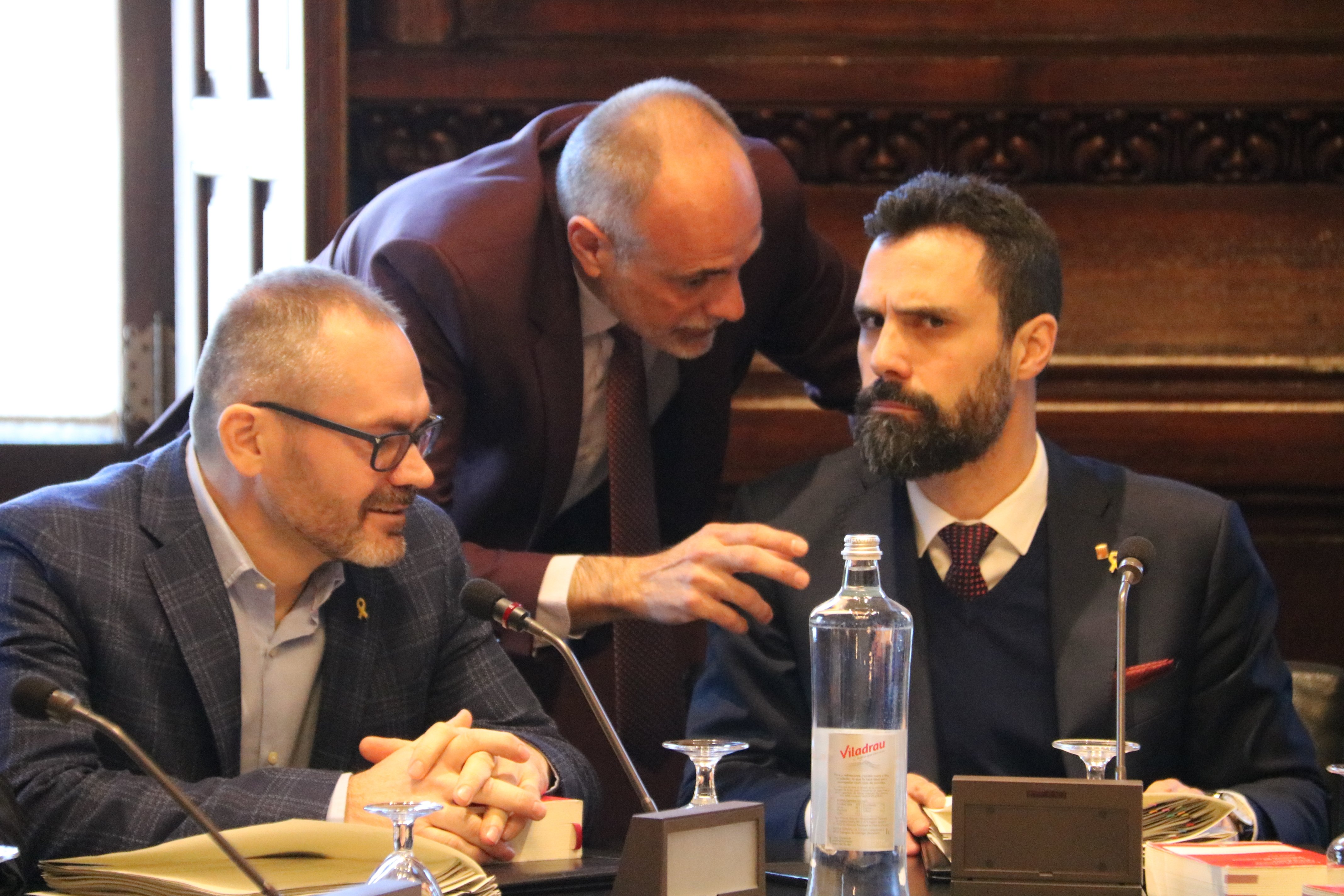As the Catalan legislature moves into its final phase, the relationship between the two governing pro-independence parties Together for Catalonia (JxCat) and the Republican Left (ERC) has passed through a new patch of turbulence, driven by the same phenomenon that led to the decision to move to early election: the disqualification from MP status of president Quim Torra. Following the confusion and controversy generated by the issue, the Parliament's legal services are to amend the appeal which the house is making to the Supreme Court against the Central Electoral Commission's decision to remove Torra from his seat. Sources close to the parliamentary lawyers have told ElNacional.cat that they are to eliminate a much-disputed section of the submission, questioning whether Torra can remain in his present status: still president, yet without the status of a member of parliament.
The Supreme Court said in mid-January that if Parliament wanted to file an appeal, it would have to be passed by a majority of the chamber. And so it was this afternoon. JxCat, ERC, the other pro-independence party CUP and the left wing Commons voted to challenge the electoral body's decision to expel Torra from his seat. They claim that the electoral commission has no jurisdiction to order this measure and until the Supreme Court rules on Torra's appeal to his sentence, there is no case. The Catalan Socialists abstained, saying that elections are needed immediately. Ciudadanos demands that Pedro Sánchez once again suspend Catalonia's self-government in order to sack its president, and complains that "Parliament is providing its lawyers free of charge" to a "criminal". A criticism echoed by the PP.
The discrepancies in the majority arose on the content of the appeal. Finally, as confirmed by several sources, the JxCat criterion will be applied and it will not ask for a temporary injunction while the matter is considered, given that this is the part of the text which includes the reference to the controversial argument, that Torra's loss of his MP status would jeopardize his continuity as president. JxCat's Josep Costa expressed his party's disappointment that that Parliament had not stood up to the commission last week, and ignored its ruling altogether.
A legal tangle
This is an argument that has been conducted out loud over the last 24 hours, but it originated two weeks ago, when the parliamentary lawyers prepared the appeal to save Torra's seat. In contrast to their thesis in the first draft, just after the electoral commission's ruling - which made it clear that there was no problem with him remaining president even as his MP status was withdrawn - the new text that they intended to submit to the Supreme Court stated that "the condition of MP is a necessary requirement for being president" and added that "although the law does not state it expressly, it is possible to interpret it as meaning that this condition not only must apply at the time of the election, but must also be maintained as long as the [presidential] office is held."
The document caused upset within the legal service itself as well as among JxCat, which saw it as backing the argument put by the PP and Cs that Torra can no longer be president since he is not a parliamentary deputy. In fact, the PP has today used this argument as the basis for a criminal complaint against the head of the Catalan executive for illegal appropriation of powers.
Hours later, the author of the appeal, lawyer Antoni Bayona, explained that incorporating this point was "because raising this doubt could be relevant in convincing the court to suspend the decision [to remove Torra's MP status]". Bayone also stated that his text did not accept that such an interpretation was valid, but merely that it was a possible reading. And, he said, it concluded ratifying the starting position of the legal team, asserting that Torra is able to remain president even if he is not a sitting MP.
All of this, on the eve of the much-vaunted meeting between president Quim Torra and Spanish prime minister Pedro Sánchez, this Thursday at the Palau de la Generalitat in Barcelona.

